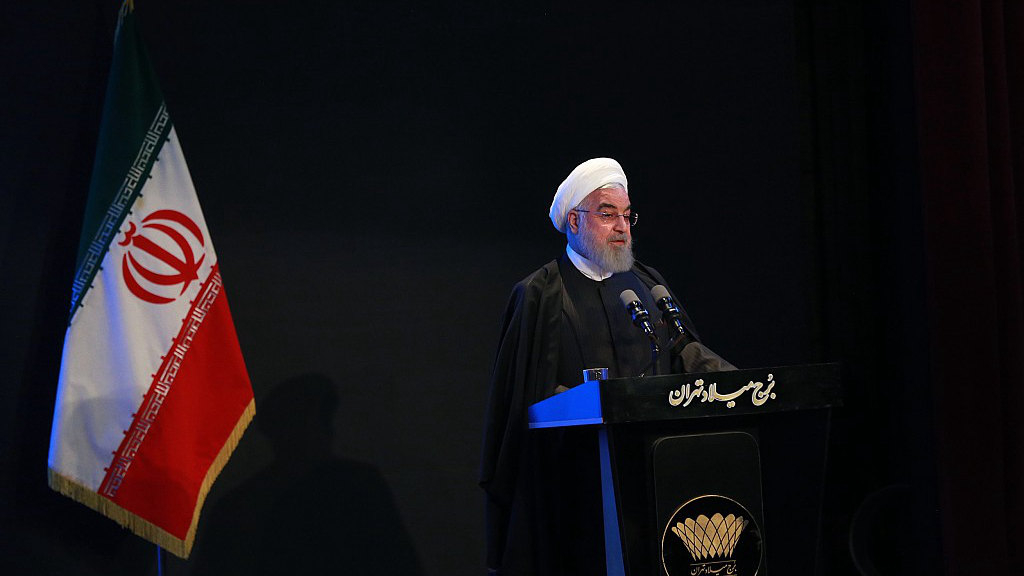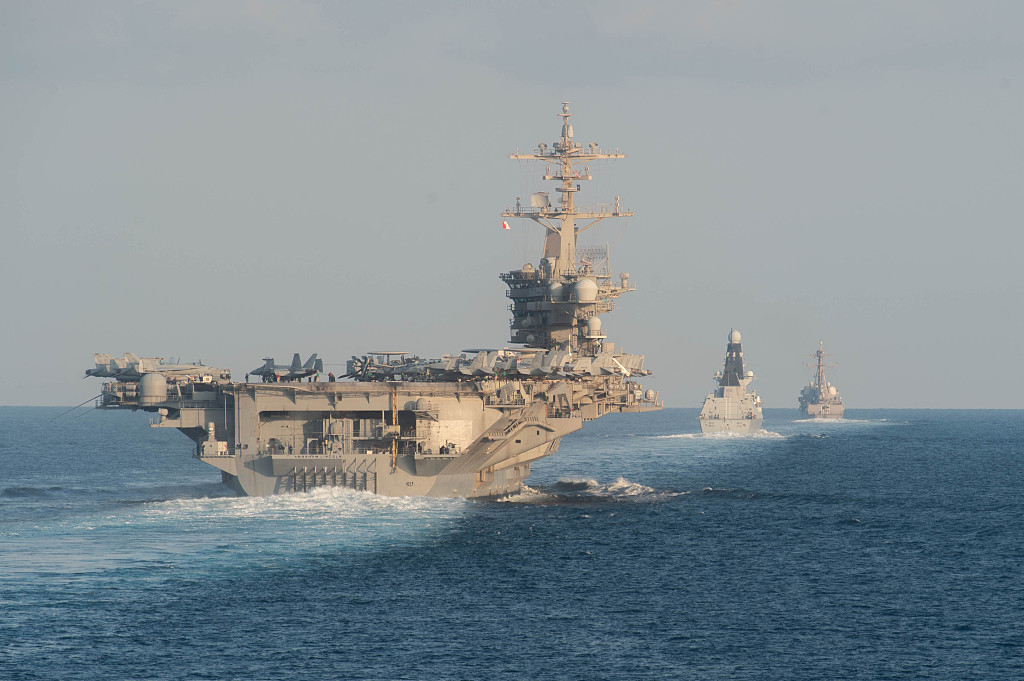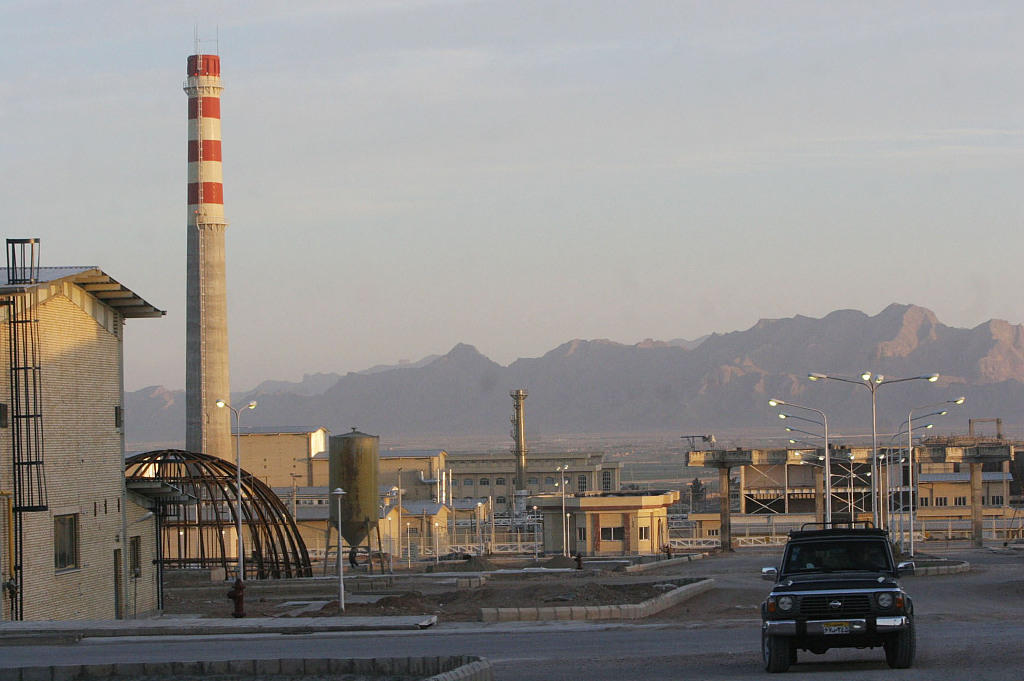
The United States said on Thursday that Iranian authorities may have killed more than 1,000 people in a "crackdown" on demonstrations, since protests over gasoline price hikes began in mid-November.
"It's a horrible situation," said Trump, speaking to reporters ahead of a meeting at the White House with the permanent representatives of the United Nations Security Council.
"They're killing a lot of people and they're arresting thousands of their own citizens in a brutal crackdown in recent weeks because they're protesting," he said, as he vowed to respond "strongly" to any threat from Iran against U.S. interests.
The unrest, which began on November 15 after the Iranian government raised fuel prices by as much as 300 percent, spread to more than 100 cities and towns and turned political as young and working-class protesters demanded clerical leaders step down.
Tehran has given no official death toll, but it dismissed the high death tolls as "utter lies" and confirmed only five dead – four security force personnel killed by "rioters" and one civilian.

U.S. aircraft carrier USS Abraham Lincoln (L), the air-defense destroyer HMS Defender and the guided-missile destroyer USS Farragut transit the Strait of Hormuz, November 19, 2019. /VCG Photo
U.S. aircraft carrier USS Abraham Lincoln (L), the air-defense destroyer HMS Defender and the guided-missile destroyer USS Farragut transit the Strait of Hormuz, November 19, 2019. /VCG Photo
Iranian authorities have blamed "thugs" linked to its opponents in exile and the country's main foreign foes – the United States, Israel and Saudi Arabia – for the unrest.
U.S. considers more troops
Speaking to reporters on Thursday, U.S. Special Representative for Iran Brian Hook accused Iranian authorities "murdering" civilians including at least a dozen children.
As Hook demanded further diplomatic isolation of Iran, a senior Pentagon official did not rule out sending more forces to the region. "We're continuing to look at that threat picture and have the ability to dynamically adjust our force posture," John Rood, the Pentagon's policy chief, told a Senate hearing.
A U.S. official told AFP on condition of anonymity that Defense Secretary Mark Esper was considering plans to move between 5,000 and 7,000 troops to the Middle East.
The official did not confirm where the troops would be sent or in what time frame.
The nuclear deadlock
Tensions have risen sharply last year since Trump pulled out of the 2015 nuclear deal between Iran and six world powers and sought to ban all of Iran's oil exports.
In response to the U.S. unilateral move, Iran overstepped the deal's limits on its nuclear activities, and last month it also begun refining uranium at Fordow, a site built inside a mountain.

An uranium conversion facility is located near the city of Isfahan, about 254 miles (410 kilometers), south of capital Tehran, Iran, March 30, 2005. /VCG Photo
An uranium conversion facility is located near the city of Isfahan, about 254 miles (410 kilometers), south of capital Tehran, Iran, March 30, 2005. /VCG Photo
In September, the United States said Iran was responsible for attacks on the major Abqaiq oil processing center in Saudi Arabia.
Ambassadors from Britain, Germany and France, which still back the deal, said Iran's missile program is capable of delivering nuclear bombs in a letter to the UN Security Council.
The three diplomats called on UN Secretary-General Antonio Guterres to tell the body in his next report that Iran's missile program was "inconsistent" with a UN resolution underpinning the 2015 nuclear deal.
Iran responded defiantly.
The country's foreign minister on Thursday said the three had shown their "miserable incompetence" in fulfilling their commitments.
"Latest E3 letter to UNSG on missiles is a desperate falsehood to cover up their miserable incompetence in fulfilling bare minimum of their own #JCPOA obligations," Zarif tweeted, referring to the nuclear deal by its formal acronym. He urged Britain, France and Germany not to bow to "U.S. bullying."
Iran's envoy to the UN Majid Takhte Ravanchi said it was determined to proceed with its missile program, which is defensive in purpose and nothing to do with its nuclear activity.
The UN Security Council is due to meet later this month on the state of compliance with the resolution underpinning the nuclear deal, and the European letter "will add to that discussion," a senior European diplomat said.
(Cover: Iranian President Hassan Rouhani makes a speech during 26th National Conference on Insurance and Development in Tehran, Iran, December 4, 2019. /VCG Photo)
(With inputs from Reuters and AFP)